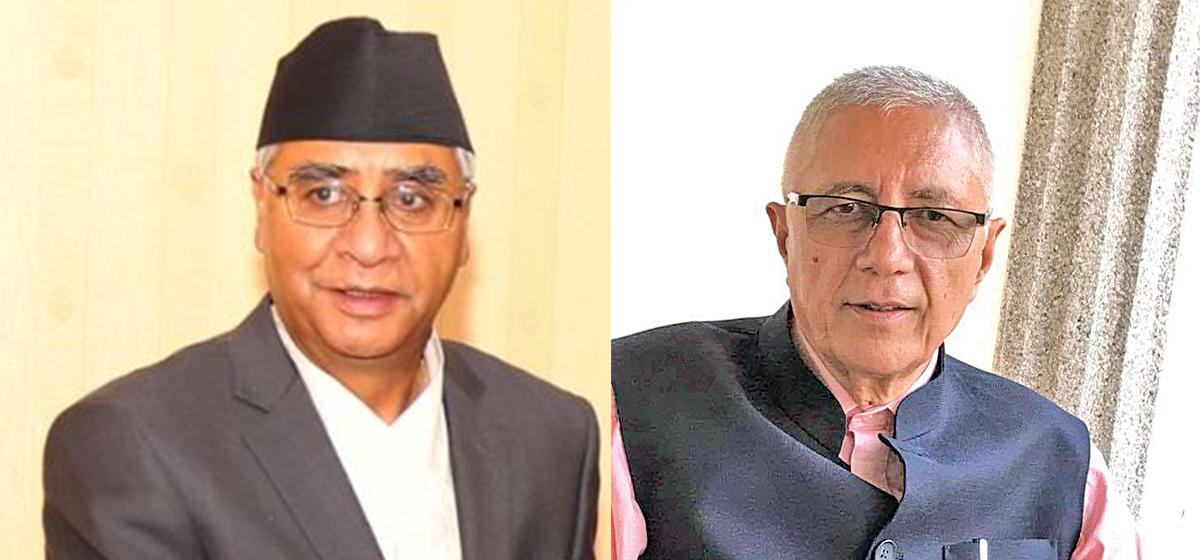Power Struggle Explodes Inside Nepali Congress: Shekhar Koirala Challenges Deuba-Oli Alliance Deal

KATHMANDU — A storm is brewing within Nepal's oldest democratic party as the internal rivalry between party president Sher Bahadur Deuba and senior leader Shekhar Koirala intensifies, threatening to split the Nepali Congress (NC) at its core. At the center of this escalating conflict lies a fundamental question: Why did the party surrender the leadership of the government to KP Sharma Oli of the UML, betraying both principle and precedent?
The confrontation came to a head on Monday as the Central Working Committee meeting convened at the party’s Saneepa headquarters. In an unusually blunt tone, Koirala openly challenged Deuba’s controversial decision to hand over the reins of government to Oli, despite the Congress being the largest democratic party in Parliament. “I was the one who proposed a coalition with UML,” Koirala said during his address, “but I never agreed to let Congress play second fiddle. Why did we give away leadership?”
Koirala’s statement landed like a thunderclap in the hall, echoing growing unrest among the party’s reformist faction. He demanded a clear explanation from Deuba on not just the leadership compromise, but also on the lack of transparency over the seven-point agreement signed in the dead of night on Asar 17 last year—a deal that allegedly laid the groundwork for the current power-sharing arrangement with Oli.
The long-standing rivalry between Koirala and Deuba is no secret, but this latest exchange has ignited fears that the Nepali Congress is heading toward a full-blown schism. The party had earlier allied with Pushpa Kamal Dahal's Maoist Centre during the 2079 federal and provincial elections. Now, with a pivot toward Oli’s UML, Koirala accuses the leadership of ideological drift and opportunism. “Why did we partner with the Maoists then and shift to UML now? The people deserve answers, and the party cannot remain silent,” he emphasized.
Behind Koirala’s fury lies a deeper unease within Congress ranks about growing influence wielded by Deuba’s inner circle, particularly his spouse Arzu Rana Deuba. Critics allege that decision-making in the party has increasingly become centralized around the Deuba household, sidelining the institution’s broader democratic processes. While no direct accusations were leveled at Arzu during the meeting, her name continues to surface in private conversations about shadow governance.
Political analysts observing the situation note that this isn’t just an internal disagreement—it reflects a broader crisis of identity for the Nepali Congress. Once the guardian of democratic values, the party now appears increasingly reactive and uncertain in its strategic choices, oscillating between leftist populism and conservative nationalism. Many fear this ideological ambiguity could push the party into irrelevance at a time when Nepal’s geopolitical stakes are higher than ever.
Public sentiment is also shifting. On social media, young Congress supporters have begun questioning whether the party still represents their aspirations or merely serves as a vehicle for elite power games.
So far, Deuba has remained silent, perhaps calculating that the storm will pass. But with each passing day, his grip on the party appears increasingly brittle. The fact that such pointed questions are now being raised in public forums suggests that the old culture of loyalty and silence is eroding fast.
As internal discontent simmers and strategic miscalculations mount, the coming weeks may determine whether the Nepali Congress can reinvent itself—or collapse under the weight of its contradictions. Will Deuba address the growing distrust within his ranks, or will Koirala be forced to forge a new path outside the party’s traditional fold? Either way, the fight for the soul of Nepal’s oldest party has only just begun.
